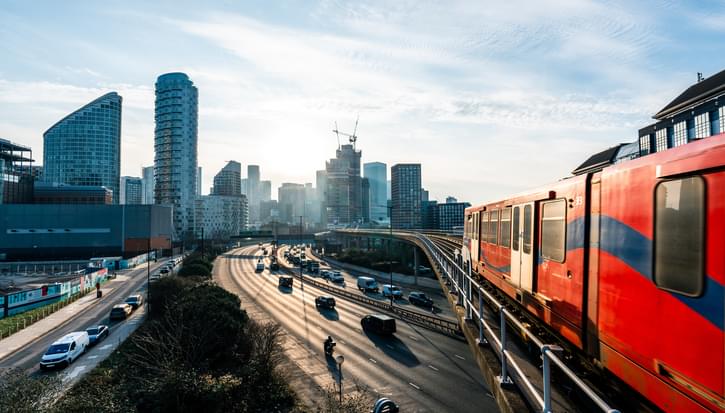Tackling air pollution is both a challenge and an opportunity
Article
The government’s commitment to ban the sale of new conventional petrol and diesel cars and vans after 2040 is a welcome move. This is because it provides an explicit signal to drivers and manufacturers that the internal combustion engine is on the way out and that they’d best look to invest in alternatives. And, judging by the direction of countries like France, this could increasingly become the norm in nations across the world. This is important as road transport is one of the single largest contributors to air pollution.
However, the health effects of air pollution, including the attributable loss of around 40,000 lives a year, have led health experts and medical practitioners the world over to conclude that poor air quality is a public health emergency. These pronouncements are proportionate, backed by a large body of evidence, and implore immediate action to protect populations. The government’s failure to act quickly on tackling this emergency has led it to lose a string of court cases, including that which recently demanded the government produce its latest plan. Furthermore, as previous IPPR research has shown, the traffic air pollution problem is deeply entrenched into the society and economy of our cities. In London, for example, a reduction in the percentage of diesel cars to 1995 levels, at 10% from today’s 60% or so, still would not bring the capital to within legal levels.
Together, these factors, among others, are why so many groups, from campaigners to industry, have criticised the government’s new air quality plan for being too slow and not going far enough in the depth of its action. In particular, it is clear that the government needs to explain why clean air zones – those which charge or ban polluting vehicles – are not being given priority in their response to this emergency, even though the government itself has concluded that they are likely the “quickest, most cost-effective way” of reducing air pollution. More is also needed to explain why the onus is on local areas to quickly develop plans for what is a national collective action problem, and at a time when they have famously been drained of money, notwithstanding new funding sources. Local authorities may know their areas best, but what use is a reduction in diesel vehicles in one area if they are to migrate to another? Clean air zones that charge vehicles, as could soon be the case in London, and national co-ordination of the diesel phase out are both urgently needed.
But let’s stand back a moment and look at the bigger picture. Transport causes or contributes to a raft of other, related problems that impose large costs, such as congestion and carbon emissions. As with air pollution, these occur all over the country, as we explored in a recent paper on the North of England, and are intimately related to air pollution – more congestion means more vehicles sitting in queues which means more air pollution, for example. Therefore, all of these problems should be combated together to both accelerate the pace of air pollution reduction and combat its deep, structural causes in a way that works for all sections of the society and the economy.
The benefits of a whole systems approach could be profound. Indeed, this transition is already starting to happen, albeit in particular areas, such as London. A modal shift toward sustainable transport has helped lower congestion, carbon emissions and inefficient vehicle use as well as reducing air pollution. The rollout of digitally-enabled transport options, such as journey planners and car clubs, are lowering car use and driving the penetration of electric vehicles – and are often much cheaper than owning a vehicle. Into the future, autonomous vehicles could completely change the way we think of travel and almost completely solve many transport problems.
Crucially, air pollution provides a salient political narrative to frame this idea of a grand ‘mobility transition’ towards a cleaner, cheaper, more efficient transport system. Indeed, the UK can gain large social and economic value from exploiting these technologies, many of which we lead the world in, and can do so through an industrial strategy that targets the ‘mobility transition’ as a key mission. The government should see air pollution as both an emergency to rapidly solve and a massive opportunity to usher in a new transport system that defines Britain’s role as a leader in the transition to an economy that works for all.
Related items

Planes, trains and automobiles: How green transport can drive manufacturing growth in the UK
Transport is essential to our lives. Unfortunately, it is currently also the largest source of UK domestic carbon emissions.
Regional economies: The role of industrial strategy as a pathway to greener growth
Regions like the North should have a key role to play in the development of a green industrial strategy.
Achieving the 2030 child poverty target: The distance left to travel
On 27 March, the Scottish government will announce whether Scotland’s 2023 child poverty target – no more than 18 per cent of children in poverty – was achieved.